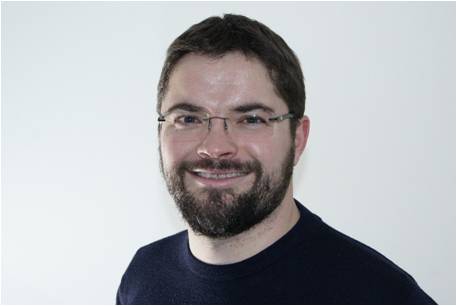

2016年11月21日下午3:00—4:30
地点:外国语学院A402学术报告厅
主讲人:Sune Vork Steffensen (University of Southern Denmark, Odense, Denmark)

Ecolinguistics: a critical introduction
Sune Vork Steffensen
Centre for Human Interactivity, Dep. of Language and Communication, University of Southern Denmark
Ecolinguistics studies how the domain of language influences the domain of the environment, and vice versa. One strand of ecolinguistics focuses on howverbal behaviourhas environmental implications, and hence how the current ecological crisis is co-constituted by linguistic phenomena.While this strand works from language to ecology, another strand works in the opposite direction, i.e. from ecology to language. This line of work attempts to ground the study of language and linguistic interaction in an ecological understanding of the human existence, e.g. how human cognition and behaviour are ecologically embedded.
This presentation introduces contemporary ecolinguistics. First it gives an overview of the field and the various strands within it. Second it critically discusses some theoretical assumptions that are not sufficiently grounded(Steffensen, in press). Third it points towards some recent developments in the language sciences that may provide us with an integrated framework of ecolinguistics. These developments include Distributed Language (Steffensen, 2015, Cowley, 2011) and linguistic studies based on ecological psychology (Fowler and Hodges, 2011). The argument is that these developments, in combination with an ecological naturalism, allow for a more grounded ecolinguistic discipline that overcomes some of the conceptual problems in contemporary ecolinguistics(Steffensen and Fill, 2014, Cowley, 2014, Finke, 2014).
References
COWLEY, S. J. (ed.) 2011. Distributed Language, Amsterdam: John Benjamins.
COWLEY, S. J. 2014. Bio-ecology and language: a necessary unity. Language Sciences, 41, Part A, 60-70.
FINKE, P. 2014. The ecology of science and its consequences for the ecology of language. Language Sciences, 41, Part A, 71-82.
FOWLER, C. A. & HODGES, B. H. 2011. Dynamics and Languaging: Toward an Ecology of Language. Ecological Psychology, 23, 147-156.
STEFFENSEN, S. V. 2015. Distributed Language and Dialogism: notes on non-locality, sense-making and interactivity. Language Sciences, 50, 105-119.
STEFFENSEN, S. V. in press. The microecological grounding of language: how linguistic symbolicity extends and transforms the human ecology. In:FILL, A. & PENZ, H. (eds.) Routledge Handbook of Ecolinguistics London: Routledge.
STEFFENSEN, S. V. & FILL, A. 2014. Ecolinguistics: the state of the art and future horizons. Language Sciences, 41, Part A, 6-25.
Bio-statements
Sune Vork Steffensen is Associate Professor of Interpersonal Communication and Cognition at the University of Southern Denmark. Having written a PhD in linguistics at University of Aarhus, he took up his current position at the University of Southern Denmark in 2008. In 2012 he became the founding director of the Centre for Human Interactivity, which investigates how language, social organization, and cognition intersect in complex social and dialogical systems. His research interests include: interaction and interactivity; ecological, dialogical and distributed approaches to language and interaction; the functioning of cognitive ecosystems. He has pioneered the so-called Cognitive Event Analysis, a qualitative method for studying distributed cognitive processes in cognitive systems consisting of individuals, dyads or teams, working in complex social and material environments. In recent years, he has co-edited volumes on dialectical linguistics (Continuum, 2007), biosemiotics and health interaction (Braga University Press, 2010), the distributed dynamics of language (Language Sciences, 2012), and ecolinguistics (Language Sciences, 2014). Since July 2015 he has been acting as Editor in Chief of the journal Language Sciences.